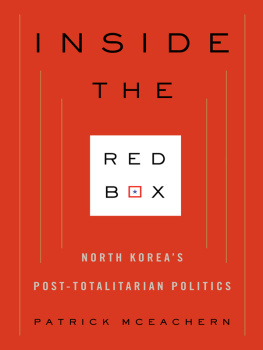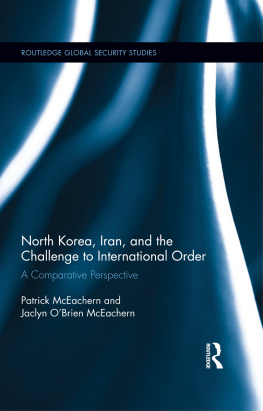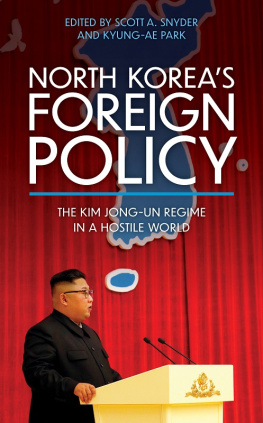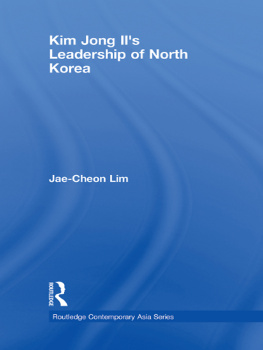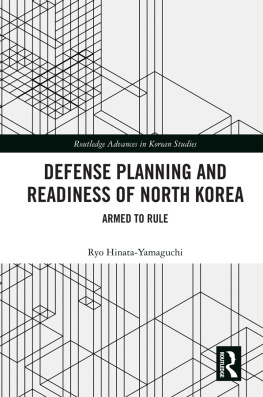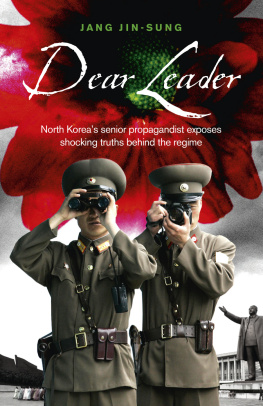INSIDE THE RED BOX
CONTEMPORARY ASIA IN THE WORLD
CONTEMPORARY ASIA IN THE WORLD
David C. Kang and Victor D. Cha, Editors
This series aims to address a gap in the public-policy and scholarly discussion of Asia. It seeks to promote books and studies that are on the cutting edge of their respective disciplines or in the promotion of multidisciplinary or interdisciplinary research but that are also accessible to a wider readership. The editors seek to showcase the best scholarly and public-policy arguments on Asia from any field, including politics, history, economics, and cultural studies.
Beyond the Final Score: The Politics of Sport in Asia, Victor D. Cha, 2008
The Power of the Internet in China: Citizen Activism Online, Guobin Yang, 2009
China and India: Prospects for Peace, Jonathan Holslag, 2010
India, Pakistan, and the Bomb: Debating Nuclear Stability in South Asia, umit Ganguly and S. Paul Kapur, 2010
Living with the Dragon: How the American Public Views the Rise of China, Benjamin I. Page and Tao Xie, 2010
Harmony and War: Confucian Culture and Chinese Power Politics, Yuan-Kang Wang, 2011
INSIDE THE RED BOX
NORTH KOREAS POST-TOTALITARIAN POLITICS
PATRICK MCEACHERN
COLUMBIA UNIVERSITY PRESS NEW YORK

Columbia University Press
Publishers Since 1893
New York Chichester, West Sussex
cup.columbia.edu
Copyright 2010 Columbia University Press
All rights reserved
E-ISBN 978-0-231-52680-7
Library of Congress Cataloging-in-Publication Data
McEachern, Patrick, 1980
Inside the red box: North Koreas post-totalitarian politics / Patrick McEachern.
p. cm.(Contemporary Asia in the world)
Includes bibliogrqaphical references and index.
ISBN 978-0-231-15322-5 (cloth : alk. paper)ISBN 978-0-231-52680-7 (e-book)
1. Korea (North)Politics and government1994 2. Korea (North)Foreign relations. 3. Kim, Chong-il, 1942 I. Title. II. Series.
DS935.774.M44 2010
951.93051dc22 2010017046
A Columbia University Press E-book.
CUP would be pleased to hear about your reading experience with this e-book at .
References to Internet Web sites (URLs) were accurate at the time of writing. Neither the author nor Columbia University Press is responsible for URLs that may have expired or changed since the manuscript was prepared.
TO JACLYN
Contents
Institutional Policy Preferences
Policy Issues in New Years Joint Editorial, 19952009
Macropolitical Organization Under Kim Il Sung
North Koreas Foreign Ministers, 1948Present
Security Apparatus Under Kim Jong Il
Institutional Lead by Issue Area, 19982009
Institutional Lead on Economic Policy, 19982009
Institutional Lead on Inter-Korean Policy, 19982009
Institutional Lead on U.S. Policy, 19982009
This book simply would not have been possible without the hard work of many people. First and foremost, I thank Mark Gasiorowski whose thoughtful critique, clear direction, and warm encouragement shepherded the book from conception to realization. He consistently challenged me to think deeper and consider another angle, and he provided clear and incredibly timely advice on issues large and small. I also owe a debt of gratitude to Bill Clark, Wonik Kim, and David Sobek for helpful comments on the manuscript and for helping lay the foundations for this project. Bill Clark first exposed me to regime types and encouraged my interest in concepts like totalitarianism; Wonik Kim provided valuable insights into the state/society-relations perspective and helped me explore East Asian history; and David Sobek helped me place this project in wider perspective for the discipline.
I also thank a number of my colleagues at the State Department and elsewhere in the federal government, think tanks, and other academic institutions. John Merrill, Brian Kux, Allison Hooker, the rest of INRs Team Korea, my many colleagues on the Korea desk, and others have taught and continue to teach me a great deal. I also appreciate the opportunities I have had to discuss and debate issues with my friends and colleagues. The views expressed here are mine alone and do not necessarily represent those of the U.S. Department of State or the U.S. the government.
I am constantly amazed at the generosity of scholars willing to read part of all of a manuscript like this one. I benefited from productive exchanges with Andrew Scobell, Victor Cha, Steven Kim, Stephan Haggard, Jim Hoare, Susan Pares, Rdiger Frank, Patrick Kllner, Johannes Gerschewski, Bruce Cumings, Kirk Larsen, Alexandre Mansourov, Alexandre Vorontsov, and many others whom I am inevitably leaving off this list. One should not assume, of course, that these helpful discussants agreed with my argument, making me all the more grateful that they were willing to engage on this topic. I also owe a special thank you to Anne Routon, the editors of this series, and all those at Columbia University Press who made the entire publishing process as smooth as humanly possible.
Last but certainly not least, I single out my loving wife, Jaclyn, for all of her support through this long process. She put up with my moods and my demands for rather obsessive and prolonged focus that only seem unreasonable in retrospect. I certainly could not have completed this without her love, affection, and constant support, so it is only fitting that I dedicate this book to her.
CHAPTER ONE
North Korea is a country that has a very vertically oriented governing structure to be sure but at the same time it is [a] place for politics. And so I think it is fair to say that there are people in North Korea who really are not with the program here, [who would] really rather continue to be producing this plutonium for whatever reason.
Chris Hill, U.S. Assistant Secretary of
State for East Asia and Pacific Affairs. March 25, 2008
Kim Jong Il, chairman of the National Defense Commission and general secretary of the Korean Workers Party, hosted President Kim Dae Jung of South Korea in Pyongyang for a historic summit in June 2000. One of the long-standing issues under discussion was the presences of American troops on the Korean peninsula. The DPRK ostensibly existed to protect Koreans and their special, moral, socialist way of life from the violent, greedy, and uncivilized imperialists and puppet counterparts south of the DMZ.
Party Secretary Kim Yong-sun of the DPRK told the South Korean president that the U.S. military must remove all its troops from the peninsula. Kim Jong Il reportedly interrupted, What problem would there be if the U.S. military remained? Seeming surprised, Kim Yong-sun began presenting the party line. The U.S. military threatened North Korea and impaired national reunification. The long-held North Korean position was simple: the United States must withdraw.
The North Korean party secretary did not get his whole sentence out. Kim Jong Il again interrupted, Secretary Yong-sun, stop that. Even though I try to do something, people under me oppose it like this. Perhaps the military, too, must have the same view of the U.S. military as Secretary Yong-sun. The U.S. military should not attack us. But, in President Kims explanation, there are some aspects I concur with. [The U.S. military] need not withdraw now. It will be good for the U.S. military to remain to maintain peace even after reunification.
Kim Jong Il was either making history or playing tactical games. This incident could easily have been staged. However, he also may have been expressing genuine conflict within his regime. Groups within North Korea may reveal preferences, and Kim may have to balance and placate these groups. My theory of North Korean politics holds out the possibility that events like this one are not staged. North Koreas highest-level defector, Hwang Jang Yop, has described Kim as one who often publicly castigates senior officials on a whim. It is possible that this display actually reflected different bureaucratic positions within the state that Kim seeks to control. Kim is not a captive of his subordinates. He can make decisions and pursue initiatives solely on his own accord, but this is an incomplete understanding of the states operations. The core argument of this book is that Kim is critically important but so are North Koreas political institutions.
Next page
